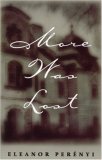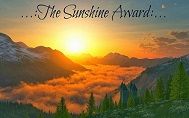Eleanor Stone, an American, meets a young Hungarian baron (educated at Oxford) while travelling in Europe and marries at the tender age of nineteen. She goes to live on his estate in Ruthenia near the Carpathian mountains. “More Was Lost”, her memoir, reads at first like a series of sketches portraying an idyllic life on a large estate.
“We walked over the fields toward an acacia-shaded road. The earth was fine and crumbly under our feet. I had not expected to feel very much about the land. It was the house and the garden that I had thought of. But I was wrong. The land was the reason for everything. And standing there, we felt rich. We wondered what everyone had meant by saying we had no money, and no future, and should not marry. Nonsense! At that moment, we felt we had everything.”
The first two-thirds of this poignant narrative is about her life on the estate, learning to speak Hungarian (she already speaks French and Italian), and becoming familiar with the 750 acre property of gardens, orchards, and vineyards. When one considers the cultural adjustments alone on top of the adjustment of marriage at such a young age, and learning a new language, it all seems very overwhelming… but Eleanor seems to take it all in stride:
“Gyorffy (her tutor) spoke German and Russian as well as Hungarian, and I spoke French and a little Spanish and Italian. We kept a pile of dictionaries beside us. We followed words from Hungarian to German to French to English, because none of our dictionaries and the right two languages. A Hungarian-English dictionary would have solved the problem, but we never got around to getting one. And really there was nothing like the satisfaction we felt when we had run a word down. We sat beaming because, for a moment, we understood each other.”
Eleanor is enjoying meeting neighbors, furnishing a large home, and learning all about making the estate self-sufficient. She is caught up in her new life and marriage…and then suddenly war is looming on the horizon and everything changes.
“What I know of what happened in the next week of the world crisis I learned later from old copies of Time. Our only source of news, the radio, was taken away from us. All radio sets in the town were ordered turned in. We were presumably going to get our news from a loudspeaker in the town hall. They never set this up. It just meant we had no news of any kind. Then came the order for the farm horses and carriages to be turned in to the army. This was a pretty clear indication that the Czechs were getting ready for a mobilization…”
We today know of the escalating world affairs that were imminent; if we were living during that time I wonder how we would do with such a precipitous sequence of events ahead. Decisions needed to be made such as where to live, when to leave a country (or if), how to function normally during an air raid, how to keep a large estate functioning during a time of overwhelming insecurity and upheaval.
A fast read for me (I kept on wanting to find out what was going to happen to this young couple and their estate), it was also poignant, descriptive, and sad. It describes a vanishing world and the persons caught up in it, and the life-changing choices set before them.
This book brought home to me how important it is to have a strong, sure foundation to rely upon when everything surrounding your world is changing.


